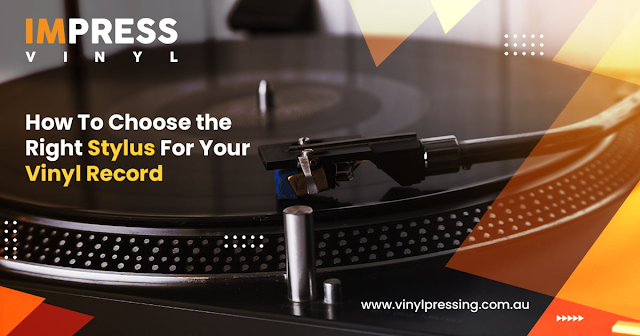How To Choose Right Needle For Your Record
As vinyl records continue to make a triumphant comeback, the need for high-quality record player needles has never been greater. These tiny but crucial components play a pivotal role in extracting the rich and nuanced sounds embedded in your vinyl collection. Whether you're a seasoned audiophile or a budding vinyl enthusiast, selecting the right needle is essential for maximizing your listening experience.
The Stylus: A Tiny Component with a Big Impact
The stylus, also known as the needle, is the delicate tip that physically touches the grooves on your records. As the record spins, the stylus vibrates in response to the physical modulations etched into the grooves. These vibrations are then converted into electrical signals by the cartridge, which are amplified and sent to your speakers. The shape, material, and quality of the stylus significantly impact the sound you hear, influencing everything from clarity and detail to distortion and tracking ability.
Navigating the Stylus Shapes
Stylus tips come in various shapes, each with its unique characteristics and sound profile. The most common types include:
Spherical Stylus:
Spherical styli are the most affordable and widely used option. They offer a good balance of durability and sound quality, making them suitable for beginner vinyl enthusiasts. Spherical styli have a rounded tip that makes contact with a relatively large surface area of the record groove. This results in a more forgiving sound profile, but it may not extract the finest details from the music.
Elliptical Stylus:
Elliptical styli have a more elongated tip that makes contact with a larger surface area of the record groove, but with a narrower contact radius compared to spherical styli. This enhanced contact area provides improved clarity and detail, especially in the higher frequencies. Elliptical styli are a popular choice among vinyl enthusiasts who seek a more refined listening experience.
Line Contact Stylus:
Line contact styli offer the most precise tracking ability, providing the highest level of detail and frequency response. They have a very narrow tip that makes contact with a very small surface area of the record groove. This precise contact allows the stylus to accurately trace even the most intricate modulations in the grooves, resulting in an incredibly detailed and nuanced sound.
Shibata Stylus:
Shibata styli are the pinnacle of stylus technology, offering exceptional detail and extended frequency response. They have a unique, asymmetrical tip that closely resembles the shape of the cutting stylus used to master original vinyl records. This meticulous design allows the Shibata stylus to track the record grooves with unmatched precision, revealing even the subtlest sonic details.
Stylus Tip Materials: Durability and Performance
The material of the stylus tip plays a significant role in its lifespan, sound quality, and overall performance. The most common materials include:
Diamond:
Diamond is the hardest natural material, making it ideal for stylus tips. It provides exceptional durability, wear resistance, and sound quality. Diamond styli can last for thousands of hours of playback, offering the best possible sound reproduction.
Bonded Diamond:
Bonded diamond tips are a more affordable option, with a diamond tip bonded to a metal shank. They offer good sound quality and durability but may not last as long as solid diamond tips. Bonded diamond styli are a suitable choice for those seeking a balance of performance and affordability.
Synthetic Sapphire:
Synthetic sapphire is a synthetic alternative to diamond, offering good durability and sound quality at a lower cost. Synthetic sapphire styli are a viable option for those on a tighter budget, providing a good balance of performance and affordability.
Choosing the Right Stylus: A Guide to Considerations
When selecting the right stylus for your record player, several factors should be considered:
Turntable Cartridge Compatibility: The stylus must be compatible with your turntable cartridge. Check the specifications of your cartridge to determine the compatible stylus model.
Listening Preferences: Consider your listening preferences and the types of music you enjoy. If you prefer crisp highs and detailed vocals, an elliptical or line contact stylus may be a good choice. For a warmer, more forgiving sound, a spherical stylus may be suitable.
Budget: Stylus prices vary widely depending on the shape, material, and brand. Set a budget and choose a stylus that fits your needs and financial constraints.
Record Collection: If you have a collection of older records, you may need a stylus specifically designed for 78 RPM records. These styli have a wider tip to accommodate the larger grooves on 78 RPM records.
Stylus Brand and Reputation: Research different stylus brands and read reviews to find a product that is known for its quality and performance. Some well-respected brands include Audio-Technica, Shure, Ortofon, and Nagaoka.



Comments
Post a Comment